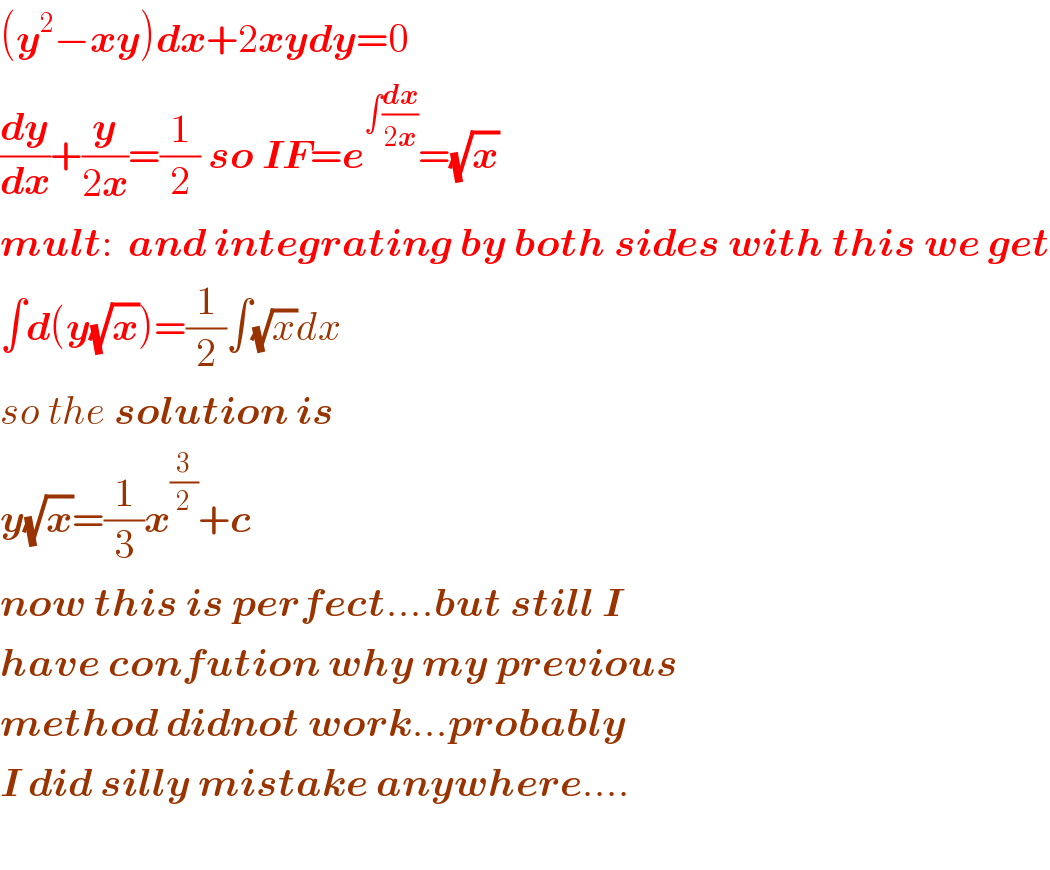
Question and Answers Forum
Previous in Differential Equation Next in Differential Equation
Question Number 97751 by bobhans last updated on 09/Jun/20
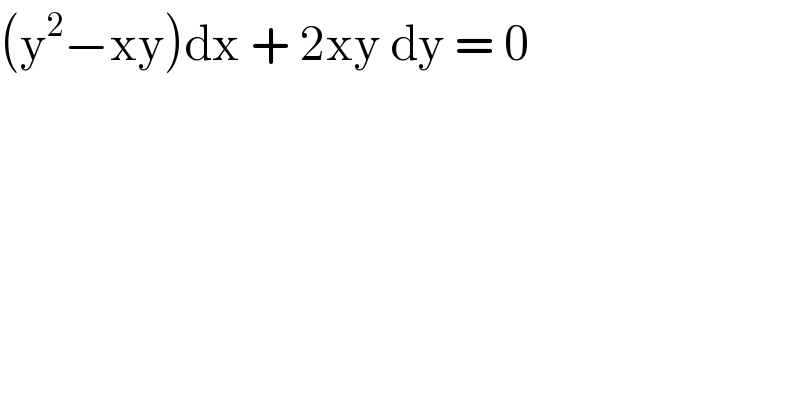
Commented by bemath last updated on 09/Jun/20
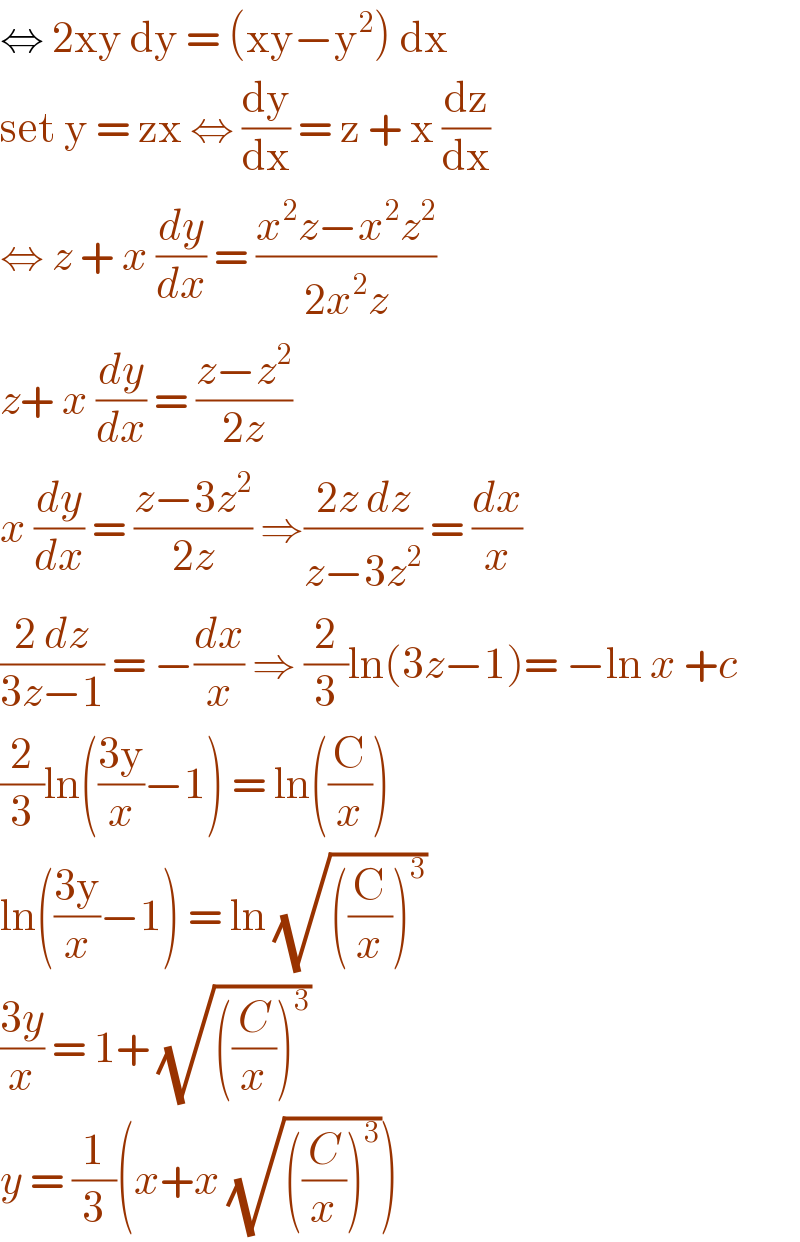
Commented by bobhans last updated on 09/Jun/20

Commented by john santu last updated on 10/Jun/20

Answered by smridha last updated on 09/Jun/20
![(∂/∂y)(y^2 −xy)=2y−x≠(∂/∂x)(2xy)=2y this is not exact differential so, (1/(2xy))[2y−x−2y]=−(1/(2y)) I.F=e^(∫−(dy/(2y))) =(1/(√y)) multi:by this of both sides of given eq^n (y^(3/2) −xy^(1/2) )dx+2xy^(1/2) dy=0 now ∫_((keeping y as constant)) (y^(3/2) −xy^(1/2) )dx =xy^(3/2) −(x^2 /2)y^(1/2) and ∫_((terms are donot containing x)) (0)dy=0 so solution: xy^(3/2) −(x^2 /2)y^(1/2) =c](Q97764.png)
Commented by mr W last updated on 09/Jun/20
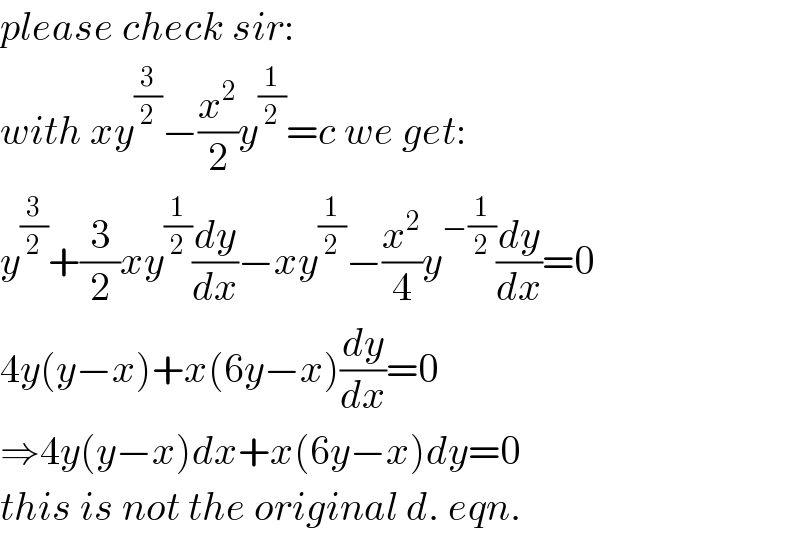
Commented by smridha last updated on 09/Jun/20

Commented by prakash jain last updated on 10/Jun/20
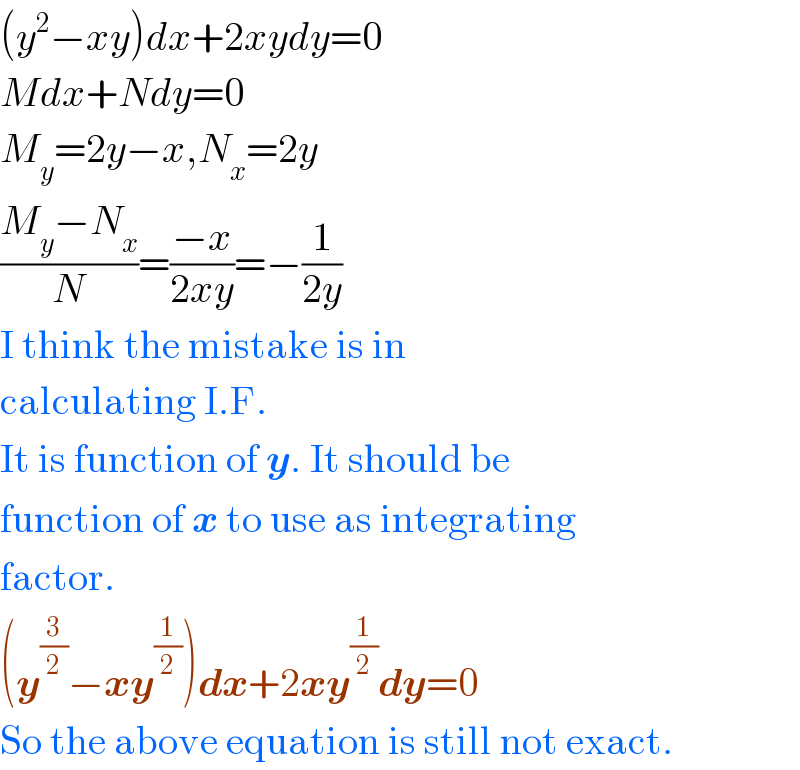
Commented by smridha last updated on 10/Jun/20
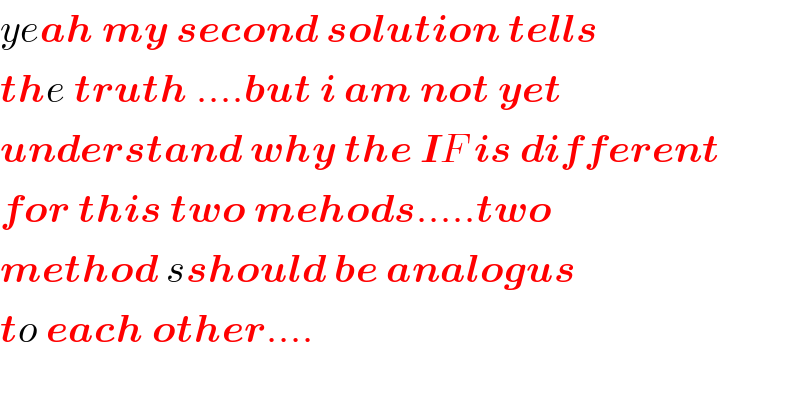
Commented by prakash jain last updated on 10/Jun/20
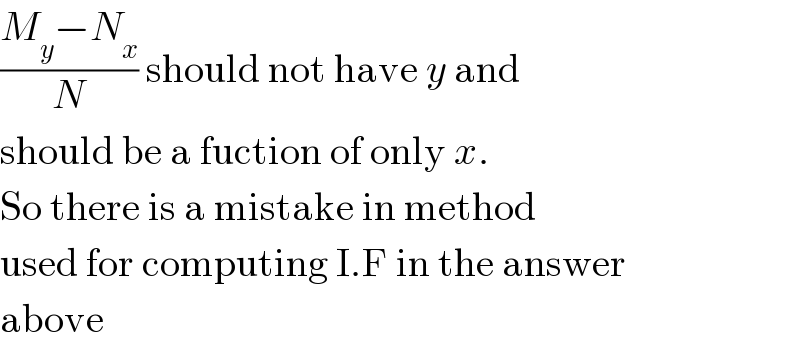
Answered by smridha last updated on 10/Jun/20
